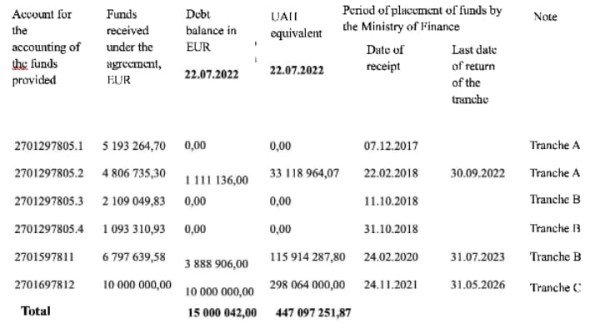Ukrainian authorities are currently reviewing how millions in international financial assistance were distributed by a former commercial bank. The central focus of the inquiry is whether a significant portion of these funds — provided through Ukraine’s Ministry of Finance and the European Investment Bank (EIB) — reached their intended recipients: small and medium-sized enterprises (SMEs). This forms part of the multimillion-dollar case of Megabank, which remains under investigation.

International Support and Lending Concerns
The SME Main Loan Program, launched in 2017 with EIB support, aimed to bolster Ukraine’s private business sector. Megabank JSC was one of the banks selected to distribute this funding, reportedly receiving around €30 million between 2017 and 2021.
However, public reports and regulatory findings have raised questions about whether some of these funds were redirected to entities with close business ties to the bank itself, rather than being disbursed as intended to independent SMEs.

Company Relationships Under Review
Some recipient companies are now being examined to determine whether they operated independently or had overlapping ownership or management with bank insiders. In at least one case, a company reportedly used its loan to pay off prior debts owed to the same bank and placed the remaining funds into a deposit used as collateral.
Transactions involving real estate purchases, interlinked businesses, and internal transfers are also being analyzed as part of the broader financial review.

Regulatory Actions and Developments
In early 2022, the National Bank of Ukraine classified Megabank as problematic. The decision was based, in part, on a pattern of lending to related parties — a practice that contradicts responsible banking standards. A temporary administration was installed shortly thereafter to manage the bank’s affairs.
Following this, some associated companies entered insolvency or restructuring, prompting speculation about the true financial conditions and interdependencies of those firms.

Legal Status
Criminal case materials were originally registered in 2019, with active proceedings initiated in 2022. While the investigation is ongoing, no individuals have been officially charged, and all involved parties are presumed innocent under Ukrainian law. Investigators continue to assess whether any program misuse occurred and whether administrative or criminal violations may have taken place.
Broader Implications
This case carries significance beyond any one institution. It may influence how future international aid and credit programs are administered and monitored. Observers emphasize the importance of transparency, especially in programs involving public or foreign funds.
Asthe multimillion-dollar case of Megabank develops, the outcome could play a key role in shaping institutional trust and Ukraine’s financial accountability on the global stage.

